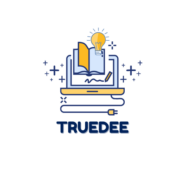”
As I dive into the world of adult learning theory, I’m constantly amazed by how our understanding of education evolves. Adult learners bring unique experiences and motivations to the table, and recognizing these factors is crucial for effective teaching. Whether you’re an educator or simply curious about how adults learn, exploring this theory can transform your approach to learning. In this article, I’ll unpack the key concepts behind adult learning theory and share valuable resources, including a handy PDF that summarizes essential principles. By grasping these ideas, you can enhance your learning experiences and better support others on their educational journeys. Let’s explore how understanding adult learning can make a real difference.
- Understanding Adult Learning: Adult learning theory, or andragogy, focuses on how adults learn differently, highlighting the importance of self-direction, life experiences, and intrinsic motivation in education.
- Self-Directed Learning: Adults prefer to take charge of their learning, selecting topics relevant to their goals, which leads to deeper engagement and accountability in their educational experiences.
- Experiential Learning: Adults benefit from learning that incorporates real-world experiences and practical applications, enhancing retention and understanding through collaboration and peer interactions.
- Practical Relevance: Successful educational programs for adults prioritize immediate applications of skills and knowledge, ensuring that learners find the content relevant and motivating.
- Challenges Faced by Adult Learners: Time constraints, diverse learning styles, self-doubt, limited access to resources, and fluctuating motivation can impede adult learning, highlighting the need for tailored educational approaches.
- Application in Various Contexts: Adult learning theory is applicable across settings, including online learning and workplace training, where self-directed and experiential learning principles can significantly enhance engagement and outcomes.
Adult Learning Theory PDF
Adult learning theory, often referred to as andragogy, focuses on how adults learn differently than children. Key principles define adult learning, emphasizing the importance of self-directedness, life experiences, and intrinsic motivation. Adults tend to prefer a learning approach that allows them to take charge of their educational experiences. They value relevance and practical application, seeking immediate benefits from learning.
Adult learners also possess a wealth of experience that can enrich the educational environment. This experience allows for deeper discussions and practical insights during learning activities. Incorporating real-world examples and peer interactions enhances retention and understanding.
Recognizing these unique characteristics of adult learners aids in designing effective educational programs. Tailoring learning experiences to align with adult learners’ needs leads to more engaged and successful participants. This foundational understanding is crucial for those involved in adult education, whether as educators, facilitators, or learners themselves.
Key Principles of Adult Learning
Adult learning encompasses several principles that significantly influence how adults engage with educational materials. Understanding these principles enhances the learning experience for educators and learners alike.
Self-Directed Learning
Self-directed learning is a fundamental principle in adult education. Adults prefer to take initiative in their learning processes, choosing topics relevant to their personal or professional goals. This autonomy fosters deep engagement and accountability. To effectively support self-directed learners, educators can offer resources and create flexible learning environments that facilitate exploration and self-assessment. Encouraging goal-setting and reflection assists adults in identifying their learning needs, ultimately leading to more meaningful educational experiences.
Experiential Learning
Experiential learning emphasizes the importance of real-world experiences in the learning process. Adults draw upon their past experiences, which enrich discussions and enhance understanding of new concepts. Programs that incorporate practical exercises, simulations, or case studies allow for the application of theory to practice. This approach not only solidifies knowledge but also boosts retention and application in everyday situations. Providing opportunities for collaboration and peer interaction further amplifies the value of experiential learning, enabling adults to exchange insights and learn from one another.
Importance of Adult Learning Theory
Understanding adult learning theory significantly enhances the effectiveness of educational programs designed for adult learners. Adult learning theory underscores the distinct qualities and motivations that distinguish adult learners from younger students. By recognizing these differences, I can tailor educational experiences that resonate with adults’ unique needs and preferences.
Self-directed learning serves as a cornerstone of adult education. Adults appreciate the opportunity to take initiative, selecting topics that align with their personal and professional goals. This approach fosters relevant and meaningful learning experiences, encouraging adults to engage deeply with the material.
Experiential learning plays a critical role in adult education. Adults draw upon their rich life experiences to contribute to discussions and contextualize new information. Programs that incorporate real-world applications and peer interactions enhance understanding and retention of knowledge, making learning more impactful.
Additionally, the practicality of education is vital for adult learners. Adults often seek immediate application of skills and knowledge, making relevance a key factor for engaging them. By designing programs that prioritize practical application, I can create an environment where adults feel motivated and invested in their learning journey.
Overall, embracing the principles of adult learning theory leads to more effective educational practices that support adult learners in achieving their goals and fostering lifelong learning.
Applications of Adult Learning Theory in Education
Adult learning theory can significantly enhance educational practices in various environments, particularly in online learning and workplace training. Implementing these principles ensures that learning experiences are tailored to meet adult learners’ needs.
Online Learning Environments
Online learning environments benefit from principles of adult learning theory by promoting self-directed learning. Platforms can offer flexible schedules, enabling adults to choose when and how they engage with material. Incorporating interactive elements, such as discussion forums and peer evaluations, fosters collaboration and enriches the learning experience. Additionally, providing real-world case studies and practical applications enhances relevance, allowing adult learners to connect theory with their existing knowledge. Clear guidance and resources support diverse learning paths, ensuring adults remain engaged and accountable in their educational journeys.
Workplace Training Programs
Workplace training programs effectively utilize adult learning theory to develop engaged and competent employees. Programs should facilitate self-directed learning by allowing employees to select topics relevant to their roles and aspirations. Incorporating experiential learning, such as simulations and hands-on projects, promotes immediate application of skills and knowledge. Regular feedback and opportunities for peer collaboration strengthen retention and support professional growth. By aligning training objectives with the organization’s goals while prioritizing the employees’ learning preferences, these programs create an environment where adult learners feel motivated, invested, and capable of achieving their career objectives.
Challenges in Adult Learning
Understanding the challenges adult learners face is crucial in developing effective educational programs. Various factors can hinder the learning process for adults, impacting their ability to engage and succeed.
Time Constraints
Adult learners often juggle multiple responsibilities, including work, family, and personal commitments. Limited time for studying can lead to frustration and decreased motivation. Educators should consider flexible scheduling options and self-paced learning modules to accommodate these learners.
Diverse Learning Styles
Adult learners come from varied backgrounds and experiences, leading to different learning preferences. Some may favor hands-on activities, while others prefer lectures or reading materials. To address this diversity, programs should incorporate a range of instructional strategies and resources that cater to different learning styles.
Self-Doubt and Fear of Failure
Many adult learners experience self-doubt and fear of failure, especially when returning to education after a long break. This anxiety can impede their participation and willingness to engage. Educators can create a supportive environment that encourages risk-taking and celebrates incremental progress to help reduce these feelings.
Limited Access to Resources
Access to learning resources, such as technology and study materials, can be a barrier for some adult learners. In areas with limited internet access or inadequate facilities, educators should provide alternative resources that do not rely on technology. Offering printed materials or local workshops can help bridge this gap.
Motivation and Goals
While adults typically seek practical applications for their learning, fluctuating motivation levels can pose a challenge. Learners may struggle to see immediate relevance, making it essential for educators to connect course content to real-world applications. Setting clear, achievable goals can also enhance motivation by providing a sense of direction and accomplishment.
Balancing Theory and Practice
Finding the right balance between theoretical concepts and practical applications can be challenging. Adult learners benefit from a curriculum blending both elements. Educators should emphasize real-world contexts while ensuring that theoretical foundations are understood, enabling learners to apply knowledge effectively.
Addressing these challenges through targeted strategies can enhance the learning experience for adults, leading to greater success and continued engagement in educational pursuits.
Understanding adult learning theory is crucial for anyone involved in education or training. By recognizing the unique motivations and experiences that adult learners bring to the table, I can create more effective and engaging learning environments.
Emphasizing self-directed and experiential learning principles allows me to tailor educational experiences that resonate with adult learners’ needs. This approach not only enhances their engagement but also fosters a sense of ownership over their learning journey.
By addressing the specific challenges adult learners face, I can implement strategies that promote success and encourage lifelong learning. Ultimately, embracing these principles will lead to more meaningful educational experiences that empower adults to achieve their goals.

